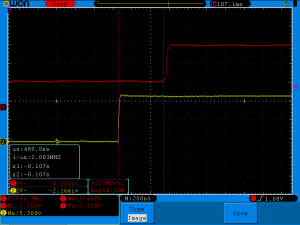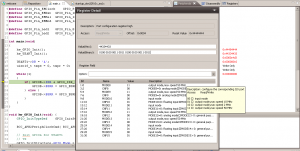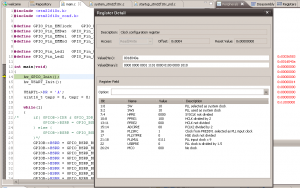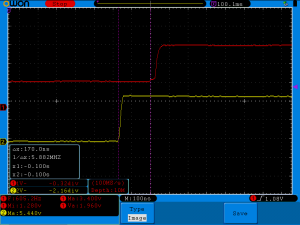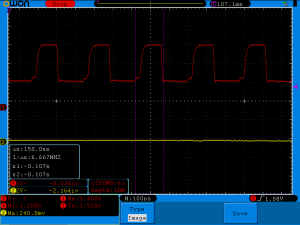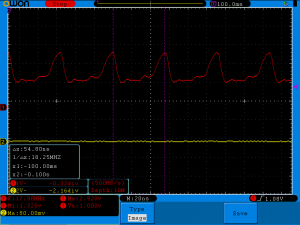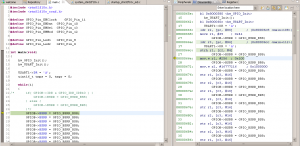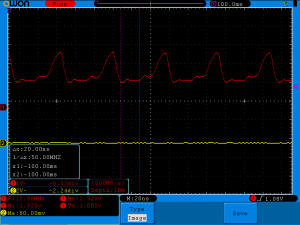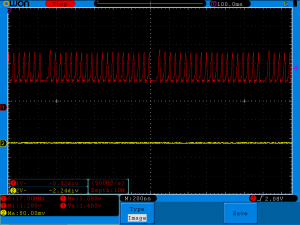As a hobby I'm working on a growbox controller which based on stm32 MCU. Yesterday I got STM32Cube MCU package update, as many times before I just upgraded package and project to latest version, as result firmware started to stuck in assert_failed().
It happens during call of SystemClock_Config() (defined in main.c) which in turn calls HAL_RCC_ClockConfig(), which in turn calls HAL_InitTick(uwTickPrio) at Drivers/STM32F1xx_HAL_Driver/Src/stm32f1xx_hal_rcc.c:947:
... /* Update the SystemCoreClock global variable */ SystemCoreClock = HAL_RCC_GetSysClockFreq() >> AHBPrescTable[(RCC->CFGR & RCC_CFGR_HPRE) >> RCC_CFGR_HPRE_Pos]; /* Configure the source of time base considering new system clocks settings*/ HAL_InitTick(uwTickPrio); return HAL_OK; } |
When it happens uwTickPrio still have invalid interrupt priority, which is defined in Drivers/STM32F1xx_HAL_Driver/Src/stm32f1xx_hal.c:80:
... /** @defgroup HAL_Private_Variables HAL Private Variables * @{ */ __IO uint32_t uwTick; uint32_t uwTickPrio = (1UL << __NVIC_PRIO_BITS); /* Invalid PRIO */ HAL_TickFreqTypeDef uwTickFreq = HAL_TICK_FREQ_DEFAULT; /* 1KHz */ ... |
Only one place where uwTickPrio can be updated is ./Drivers/STM32F1xx_HAL_Driver/Src/stm32f1xx_hal.c:234:
__weak HAL_StatusTypeDef HAL_InitTick(uint32_t TickPriority) { /* Configure the SysTick to have interrupt in 1ms time basis*/ if (HAL_SYSTICK_Config(SystemCoreClock / (1000U / uwTickFreq)) > 0U) { return HAL_ERROR; } /* Configure the SysTick IRQ priority */ if (TickPriority < (1UL << __NVIC_PRIO_BITS)) { HAL_NVIC_SetPriority(SysTick_IRQn, TickPriority, 0U); uwTickPrio = TickPriority; } else { return HAL_ERROR; } /* Return function status */ return HAL_OK; } |
But this function is redefined in ./Core/Src/stm32f1xx_hal_timebase_tim.c:42:
HAL_StatusTypeDef HAL_InitTick(uint32_t TickPriority) { RCC_ClkInitTypeDef clkconfig; uint32_t uwTimclock = 0; uint32_t uwPrescalerValue = 0; uint32_t pFLatency; /*Configure the TIM4 IRQ priority */ HAL_NVIC_SetPriority(TIM4_IRQn, TickPriority ,0); ... |
And doesn't contain proper uwTickPrio initialization, as result it's called with invalid TickPriority and fails into assert_failed() during HAL_NVIC_SetPriority(TIM4_IRQn, TickPriority ,0) call.
